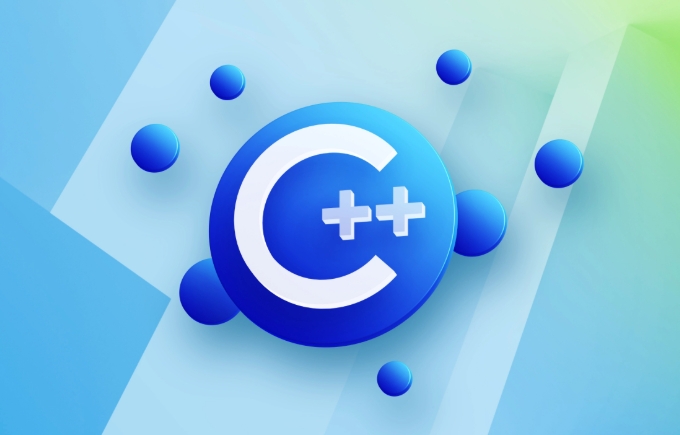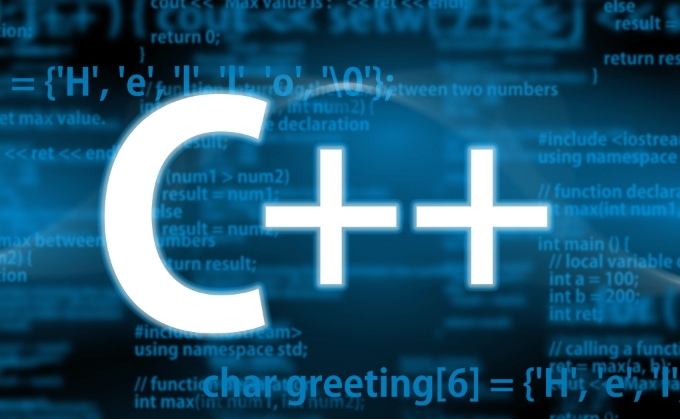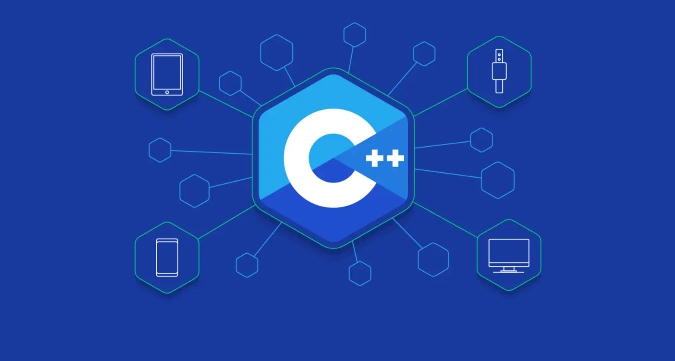The root cause of encountering the "undefined reference to function" error is that the linker cannot find the implementation of the function. Specific reasons include: ① The function declaration is not defined only; ② The function definition is misspelled or inconsistent; ③ Multiple source files are not correctly linked; ④ The static library/dynamic library is not correctly linked. The solutions are: ? Check whether the function is implemented in a .cpp file; ? Check the consistency of function signatures; ? Ensure that multiple file projects are compiled and linked together; ? Add correct link parameters when calling third-party libraries; ? Add class scope when using class member functions. Just follow the steps to locate and resolve the problem.

An error of "undefined reference to function" is encountered, which means that your C program cannot find the implementation of a certain function during the linking stage. This is not a compilation problem, but an error reported by the linker. Simply put: you declare the function, and you call it, but you don't give the linker an actual function body.

Why does an undefined reference error appear?
This type of error is usually caused by the following reasons:

- Function declaration is only undefined : you wrote the function prototype in the header file or code, but forgot to write the specific implementation of the function.
- Function definition spelling errors : such as inconsistent parameter types, different case of function names, etc.
- Multiple source files are not correctly linked : If you implement the function in another
.cppfile, but it is not compiled or linked together at compile time. - Static/dynamic library is not linked correctly : This error will also occur if the correct linking option is not specified when using third-party libraries.
For example:
// main.cpp
int add(int a, int b); // Declare int main() {
int result = add(2, 3); // Call return 0;
} The above code will not compile errors, but it will prompt undefined reference to 'add(int, int)' when linking, because you did not write the implementation of add function at all.

How to solve this problem?
? Check if the function is really implemented
Make sure that the function you call has a complete function body in a certain .cpp file. For example:
// add.cpp
int add(int a, int b) {
return ab;
} Then when compiling, all relevant .cpp files need to be compiled together, for example:
g main.cpp add.cpp -o myprogram
If it is not compiled together, the linker cannot find the implementation of add .
? Check whether the function signature is consistent
Sometimes it looks like the same function, but in fact the parameter types or numbers are different, which can also cause link failure. for example:
// Declaration is int add(int, int)
int add(int a, int b);
// Implementation is double add(int, int)
double add(int a, int b) {
return ab;
}Although the name is the same, the return value and type do not match, which will cause the linker to not find the corresponding function.
? Remember to add scope when using class member functions
If you are calling a member function of the class but forget to add the class name and scope resolution operator :: , an error may also be reported. For example:
class Math {
public:
static int square(int x);
};
// Forgot to write Math::square
int square(int x) { // This is a global function, not a return x * x in the class;
} At this time, calling Math::square(5) will report an undefined reference.
? Third-party libraries need to be linked correctly
If you are calling functions outside the standard library (such as OpenGL, SDL, Boost, etc.), you need to add the corresponding link parameters to the compile command. For example:
g main.cpp -lGL -lGLU -o myglapp
Here -lGL means linking to the OpenGL library. Without these parameters, the linker will naturally not find those library functions.
Summarize how to check
- [] Check whether there are any missed function implementations.
- [] Check whether the signature of the function declaration and implementation are exactly the same.
- [] Multi-file project confirmation is involved in compilation and linking.
- [] If an external library is used, confirm whether the correct link parameters have been added.
- [] Pay attention to whether the class member function uses the correct qualifiers and scope.
Basically these are the situations. This kind of error may seem scary, but as long as you check it according to the steps, you can generally locate it. The key is to understand that this is a problem at the link stage, not a syntax error.
The above is the detailed content of undefined reference to function error in C. For more information, please follow other related articles on the PHP Chinese website!

Hot AI Tools

Undress AI Tool
Undress images for free

Undresser.AI Undress
AI-powered app for creating realistic nude photos

AI Clothes Remover
Online AI tool for removing clothes from photos.

Clothoff.io
AI clothes remover

Video Face Swap
Swap faces in any video effortlessly with our completely free AI face swap tool!

Hot Article

Hot Tools

Notepad++7.3.1
Easy-to-use and free code editor

SublimeText3 Chinese version
Chinese version, very easy to use

Zend Studio 13.0.1
Powerful PHP integrated development environment

Dreamweaver CS6
Visual web development tools

SublimeText3 Mac version
God-level code editing software (SublimeText3)

Hot Topics
 Using std::chrono in C
Jul 15, 2025 am 01:30 AM
Using std::chrono in C
Jul 15, 2025 am 01:30 AM
std::chrono is used in C to process time, including obtaining the current time, measuring execution time, operation time point and duration, and formatting analysis time. 1. Use std::chrono::system_clock::now() to obtain the current time, which can be converted into a readable string, but the system clock may not be monotonous; 2. Use std::chrono::steady_clock to measure the execution time to ensure monotony, and convert it into milliseconds, seconds and other units through duration_cast; 3. Time point (time_point) and duration (duration) can be interoperable, but attention should be paid to unit compatibility and clock epoch (epoch)
 What is the volatile keyword in C ?
Jul 04, 2025 am 01:09 AM
What is the volatile keyword in C ?
Jul 04, 2025 am 01:09 AM
volatile tells the compiler that the value of the variable may change at any time, preventing the compiler from optimizing access. 1. Used for hardware registers, signal handlers, or shared variables between threads (but modern C recommends std::atomic). 2. Each access is directly read and write memory instead of cached to registers. 3. It does not provide atomicity or thread safety, and only ensures that the compiler does not optimize read and write. 4. Constantly, the two are sometimes used in combination to represent read-only but externally modifyable variables. 5. It cannot replace mutexes or atomic operations, and excessive use will affect performance.
 How to get a stack trace in C ?
Jul 07, 2025 am 01:41 AM
How to get a stack trace in C ?
Jul 07, 2025 am 01:41 AM
There are mainly the following methods to obtain stack traces in C: 1. Use backtrace and backtrace_symbols functions on Linux platform. By including obtaining the call stack and printing symbol information, the -rdynamic parameter needs to be added when compiling; 2. Use CaptureStackBackTrace function on Windows platform, and you need to link DbgHelp.lib and rely on PDB file to parse the function name; 3. Use third-party libraries such as GoogleBreakpad or Boost.Stacktrace to cross-platform and simplify stack capture operations; 4. In exception handling, combine the above methods to automatically output stack information in catch blocks
 What is a POD (Plain Old Data) type in C ?
Jul 12, 2025 am 02:15 AM
What is a POD (Plain Old Data) type in C ?
Jul 12, 2025 am 02:15 AM
In C, the POD (PlainOldData) type refers to a type with a simple structure and compatible with C language data processing. It needs to meet two conditions: it has ordinary copy semantics, which can be copied by memcpy; it has a standard layout and the memory structure is predictable. Specific requirements include: all non-static members are public, no user-defined constructors or destructors, no virtual functions or base classes, and all non-static members themselves are PODs. For example structPoint{intx;inty;} is POD. Its uses include binary I/O, C interoperability, performance optimization, etc. You can check whether the type is POD through std::is_pod, but it is recommended to use std::is_trivia after C 11.
 How to call Python from C ?
Jul 08, 2025 am 12:40 AM
How to call Python from C ?
Jul 08, 2025 am 12:40 AM
To call Python code in C, you must first initialize the interpreter, and then you can achieve interaction by executing strings, files, or calling specific functions. 1. Initialize the interpreter with Py_Initialize() and close it with Py_Finalize(); 2. Execute string code or PyRun_SimpleFile with PyRun_SimpleFile; 3. Import modules through PyImport_ImportModule, get the function through PyObject_GetAttrString, construct parameters of Py_BuildValue, call the function and process return
 What is function hiding in C ?
Jul 05, 2025 am 01:44 AM
What is function hiding in C ?
Jul 05, 2025 am 01:44 AM
FunctionhidinginC occurswhenaderivedclassdefinesafunctionwiththesamenameasabaseclassfunction,makingthebaseversioninaccessiblethroughthederivedclass.Thishappenswhenthebasefunctionisn’tvirtualorsignaturesdon’tmatchforoverriding,andnousingdeclarationis
 How to pass a function as a parameter in C ?
Jul 12, 2025 am 01:34 AM
How to pass a function as a parameter in C ?
Jul 12, 2025 am 01:34 AM
In C, there are three main ways to pass functions as parameters: using function pointers, std::function and Lambda expressions, and template generics. 1. Function pointers are the most basic method, suitable for simple scenarios or C interface compatible, but poor readability; 2. Std::function combined with Lambda expressions is a recommended method in modern C, supporting a variety of callable objects and being type-safe; 3. Template generic methods are the most flexible, suitable for library code or general logic, but may increase the compilation time and code volume. Lambdas that capture the context must be passed through std::function or template and cannot be converted directly into function pointers.
 What is a null pointer in C ?
Jul 09, 2025 am 02:38 AM
What is a null pointer in C ?
Jul 09, 2025 am 02:38 AM
AnullpointerinC isaspecialvalueindicatingthatapointerdoesnotpointtoanyvalidmemorylocation,anditisusedtosafelymanageandcheckpointersbeforedereferencing.1.BeforeC 11,0orNULLwasused,butnownullptrispreferredforclarityandtypesafety.2.Usingnullpointershe






